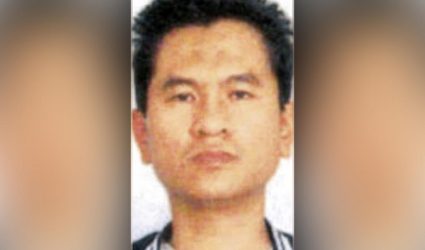Malaysian terrorist who plotted to bomb Singapore released

(ST) – Convicted Malaysian terrorist Yazid Sufaat, who acquired 4 tonnes of ammonium nitrate in 2000 in preparation for a foiled bombing plot in Singapore, has been freed from prison, sources told The Straits Times.
The 55-year-old US-trained biochemist, who once attempted to produce weapons of mass destruction for Al-Qaeda, was released from Simpang Renggam Prison, two years after serving the maximum period allowed under the Prevention of Terrorism Act (Pota).
Malaysian police counter-terrorism chief Ayob Khan Mydin Pitchay told The Straits Times that Yazid was freed after Malaysia’s Prevention of Terrorism Board met in the middle of November to discuss the matter.
“He will be under police surveillance for two years and will need to wear an electronic monitoring device (EMD). If he wishes to travel outside of Ampang, Yazid would need to alert the Ampang police chief,” Datuk Ayob said, referring to a district in Selangor state, where Yazid is residing.
Mr Ayob added that although Yazid is allowed to use a phone, he is barred from having any access to the Internet.
“He’s also not allowed leave home between 8pm and 6am but is free to accept visitors. After two years, the authorities will re-evaluate everything again before deciding,” he said.
An intelligence source said Yazid appears to have “repented” based on the input from the Prison Department, prompting the board to release him.
Another source said: “A special team will be monitoring him. The EMD would need to be charged from time to time. We will be alerted if he fails to do so, or if there is an attempt to take it off.”
The release came almost a month after national police chief Abdul Hamid Bador confirmed a Straits Times report that Yazid would be freed after serving his sentence, saying that the police would not challenge his release.
Tan Sri Abdul Hamid on Oct 23 had said that while the police understood the public’s concerns on Yazid’s abilities and how deeply involved he was in terrorism activities, it would not be right to extend his detention “based on people’s perception”.
In the 1990s, Yazid attempted to cultivate and load anthrax onto weapons in Afghanistan.
His home in Kuala Lumpur had also been used by senior Al-Qaeda members for meetings. At one meeting, plans to crash planes in the United States on Sept 11, 2001 were discussed. He is the only Malaysian with direct links to the attacks.
Despite spending almost two decades in detention and undergoing an extensive deradicalisation programme, Yazid has been described by Mr Ayob as “the most challenging militant” for the authorities to rehabilitate so far.
He was detained for a second time, in 2013, under the Security Offences (Special Measures) Act for recruiting new members for the Islamic State in Iraq and Syria.
This led to a four-year jail sentence in Perak’s Tapah prison.
In December 2017, Yazid was rearrested under Pota after the authorities found he had been recruiting fellow inmates for Al-Qaeda while in jail.
The militant also acquired 4 tonnes of ammonium nitrate in 2000 in preparation for a bombing plot in Singapore, which was foiled.
Yazid also held weekly religious classes in 2012 at his house in Ampang, Selangor, where he recruited several individuals.
The Kuala Lumpur High Court heard in 2015 that he had undergone military training in Afghanistan, met terrorist leader Osama bin Laden and taken part in conflict or what the militants dubbed as “jihad”.
While Yazid’s release raises security concerns, another intelligence source told The Straits Times: “He may be free, but we will continue to make sure that we’re steps ahead of him, always.”

